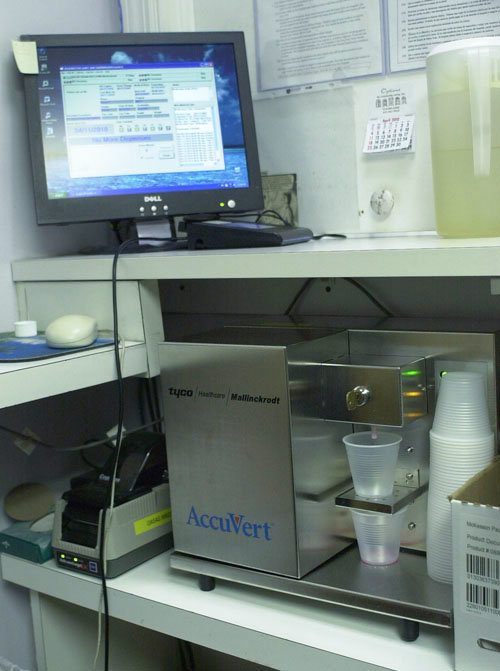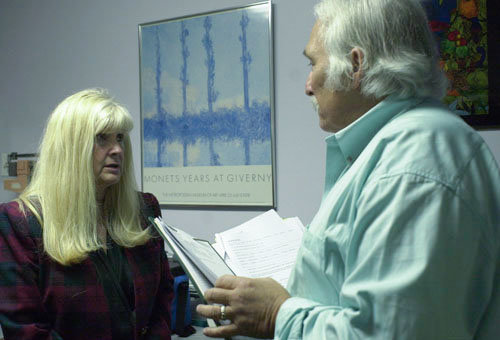Methadone maintenance as a way of life
Experts: Kicking heroin without synthetic opioids is virtually impossible

Part four in a series.
They line up every day inside an off-white office resembling a trailer across the street from the Long Beach Medical Center: two neat rows of average-looking people, waiting patiently, as if they are there to buy a cup of coffee from the local deli.
But they are there to save their lives.
At noon on a recent rainy Friday, the patients, as they're called, approached the two square windows at the front of the office, one by one. They presented ID cards, and from a computer-controlled, stainless-steel machine resembling a cappuccino maker, two registered nurses dispensed their daily methadone doses in clear plastic cups. The men and women, young and old, drank the pinkish liquid and washed it down with cups of water from a jar.
Then they hurried back into the world.
Mary, 30, the chef and recovering prescription painkiller addict profiled in "From painkillers to heroin addiction" (April 1-7), comes here daily. Methadone replaces the opiates with which she filled her system for half her life without giving her a high, and it has none of the deleterious effects of the prescription painkillers or heroin that she once abused.
Dr. Matthew Gelfand, 83, LBMC's former medical director, opened the hospital's methadone maintenance clinic in 1969 to combat a growing tide of heroin abuse in the area. It is one of only three maintenance clinics in Nassau County. To this day, Gelfand still sees methadone patients.
Since it opened, Long Beach's clinic has helped thousands return to normal lives after years of heroin and other opiate-based addictions, said Bob Krauss, LBMC's executive director of addiction treatment services, who began working at the clinic in 1970. Right now, more than 200 Long Islanders are in its methadone program.
But, Krauss warned, methadone maintenance is no easy fix for addiction. It requires a long-term commitment. Recovering addicts need, on average, seven to 10 years of maintenance before they can be weaned off methadone, he said.
And, he added, "You may never come off."






